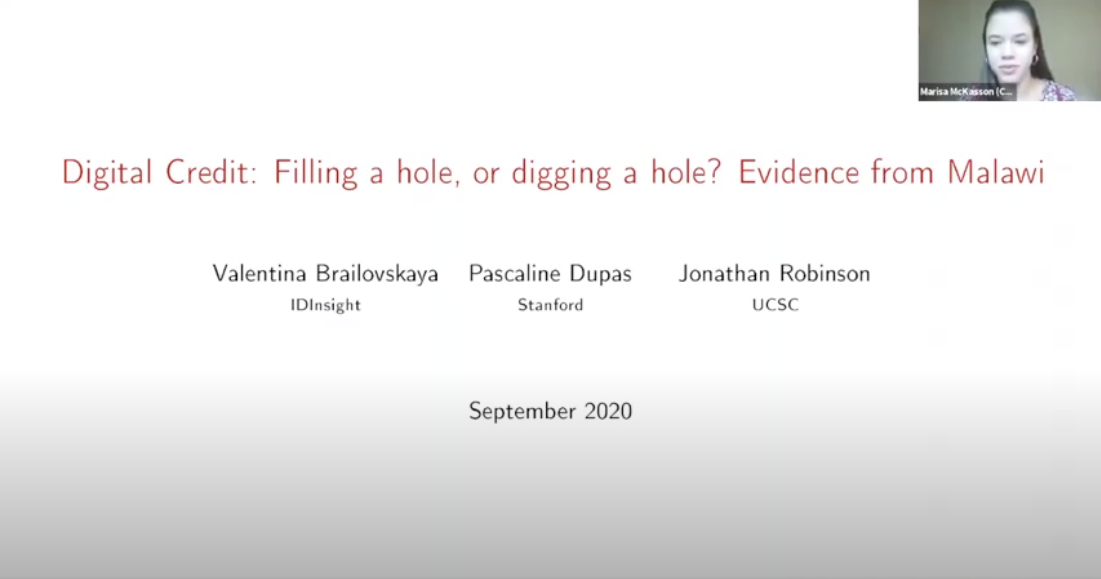Knowledge, Use, and Repayment of Digital Credit in Malawi

An Airtel kiosk | Credit: Ale Wall
Context
Consumer credit offered via mobile money networks has expanded rapidly in Africa in recent years. These digital loans tend to be for small amounts for repayment in the short-term, yet a range of fees increase their effective interest rate, and there is little evidence of customers’ awareness of lending terms or how these products may be helping or harming borrowers. Researchers partnered with mobile network operator Airtel Malawi to understand consumers’ knowledge, use, and repayment of Airtel’s “Kutchova” loan product.
Study Design
The researchers conducted a randomized evaluation of a financial literacy program informing customers of the importance of understanding Kutchova loan terms, including repayment schedules and fees. The evaluation tested combinations of interactive voice response (IVR) and SMS modules to measure the impacts on customer knowledge, attitudes, and demand for loans, as well as repayment rates, fees paid, and use of alternative sources of credit. Researchers also used administrative data and quasi-experimental methods to measure how access to Kutchova loans impacts financial behavior and wellbeing.
In Malawi and elsewhere, women are less likely to own a phone or have a mobile money account (only 38% of subscribers in Malawi are women). Women account holders also utilize mobile money less than their male counterparts, which contributes to women’s lower credit limits. To distinguish impacts for women, the researchers recruited a large, gender-balanced sample (overweighting women relative to Airtel Malawi’s customer base).
Results and Policy Lessons
The researchers found that Kutchova customers liked the product. Yet consumers were unlikely to know the correct interest rate (29%), when loans were due (47%), or about the existence of late payment penalties (46%). While 76 percent of customers reported it is relatively easy to repay their loan, only 38 percent of loans are fully repaid on time, and only 85 percent are ever repaid, meaning the majority of loans are subject to late fees. The financial literacy-focused IVR module not only improved knowledge of Kutchova fees; it also increased borrowing and improved repayment in the short-term. The researchers also found evidence that access to the loans improved borrowers’ financial well-being– including a roughly 20 percent increase in reported financial satisfaction (statistically significant)– and did not find evidence of negative impacts (e.g. reported lack of preparation for future emergencies, or food insecurity). The study did not find other impacts that varied significantly by borrower gender. It is worth noting that Kutchova customers are typically not those most financially excluded; rather, they tend to be male, urban, educated, and well-resourced relative to the average person in Malawi. However, the evidence of benefits for both genders show that these loans fill a need and do not have detectable harmful effects in this context.
For more details on the financial product, context, specifics of the research design, outcomes measured, and detailed discussion of the results, see the working paper.


